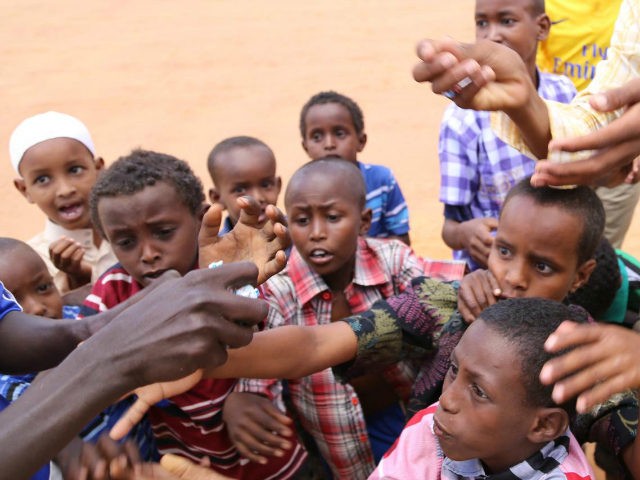Kenya’s Deputy President William Ruto said Tuesday that the nation has definitively decided to shut down the Dadaab refugee camp, believed to be the world’s largest, because it has become a reliable recruitment center for the jihadi group Al-Shabaab.
Ruto and his administration face stiff opposition from the United Nations in doing so, which insists the camp is necessary for the hundreds of thousands of Somalis fleeing Al-Shabaab violence.
Ruto told the audience at a UN humanitarian summit this week that Kenya can no longer afford to host a recruitment space for jihadists and that Al-Shabaab’s presence in the camp had become so pervasive as to leave the government only the option of shutting it down. “The refugee camp poses an existential security threat to Kenya,” he argued, adding that “Kenya has been faithful to her international obligations of humanitarian assistance but no country can shoulder humanitarian responsibilities at the expense of the security of her people and the refugees themselves.”
Ruto noted that Al-Shabaab is not alone in recruiting at the camp: Kenyan intelligence has found evidence that al-Qaeda and the Islamic State have both established a presence there, preying on mostly younger, male refugees living in the camp’s desperate conditions. “Their recruitment into terror networks, including al-Shabaab and al-Qaeda, is a threat to the world,” Ruto argued. “The route to (Islamic State) is established.”
Dadaab is home to an estimated 300,000 refugees, most from Somalia. The Kenyan government will also be shutting down the Kakuma refugee camp, bringing the number of refugees who will no longer have a home double to over 600,000. Dadaab is scheduled to be shut down in six months.
The move follows the Kenyan government’s decision in April to begin the construction of a wall along its border with Somalia, expected to span over 435 miles when completed. The government assured critics that it does not expect the wall to hurt civilian Somalis seeking to escape, but it is meant to curb traffic of jihadists back and forth across the border.
Of the refugee camp closures, Ruto highlighted the fact that Kenyan intelligence had determined that Al-Shabaab members had recruited and planned two of the worst terrorist attacks in the nation’s history from the Dadaab camp: The 2013 Westgate mall massacre and the 2015 Garissa University massacre. In the latter incident, occurring shortly before Easter, Al-Shabaab terrorists stormed the university’s campus, demanding students and professors recite Koranic verses. Those who could not, or openly identified as Christians, were killed on sight.
UN Secretary General Ban Ki-Moon has publicly criticized the move to close the camps. A UN statement noted that Ban attempted to convince Ruto to get his administration to reconsider and “pointed to the potentially devastating consequences of prematurely ending refugee hosting for hundreds of thousands of people.” Ruto, however, appears unconvinced. Speaking to The Guardian, he encouraged the UN to instead convince Western nations to take in some refugees.
“Everybody seems to be telling us – you should find a way of keeping these people. But the theme of this conference is one humanity, shared responsibility,” he said. “The UK can go with 50,000, the United States can go with 100,000, other countries can take 5,000. We can share them.”
“From where we sit, the refugee camp is beginning to cause an existential threat to Kenya as a nation, a huge security problem,” he reiterated.

COMMENTS
Please let us know if you're having issues with commenting.